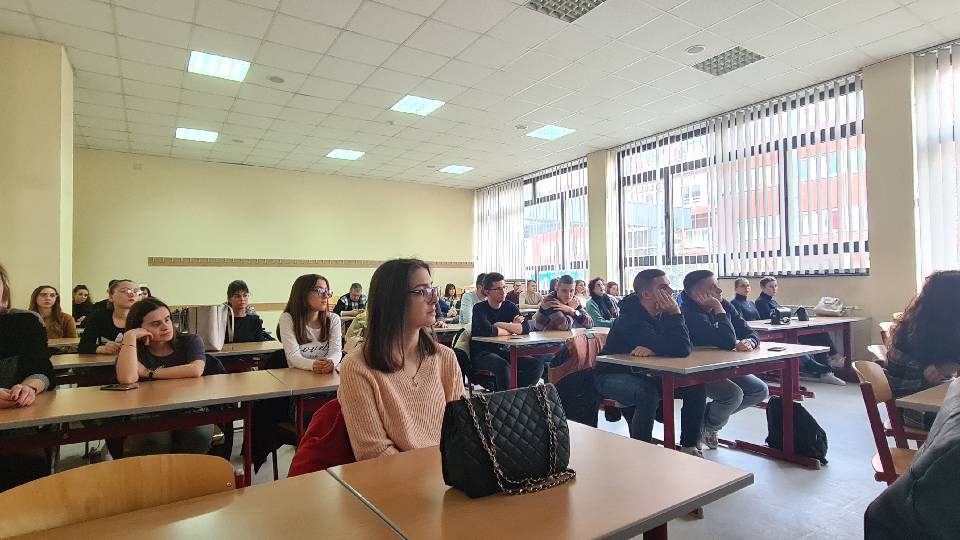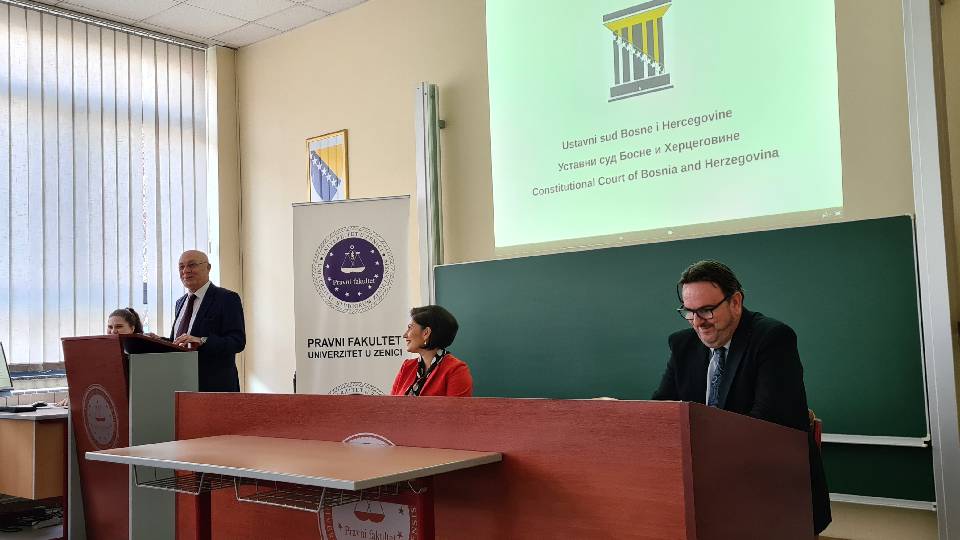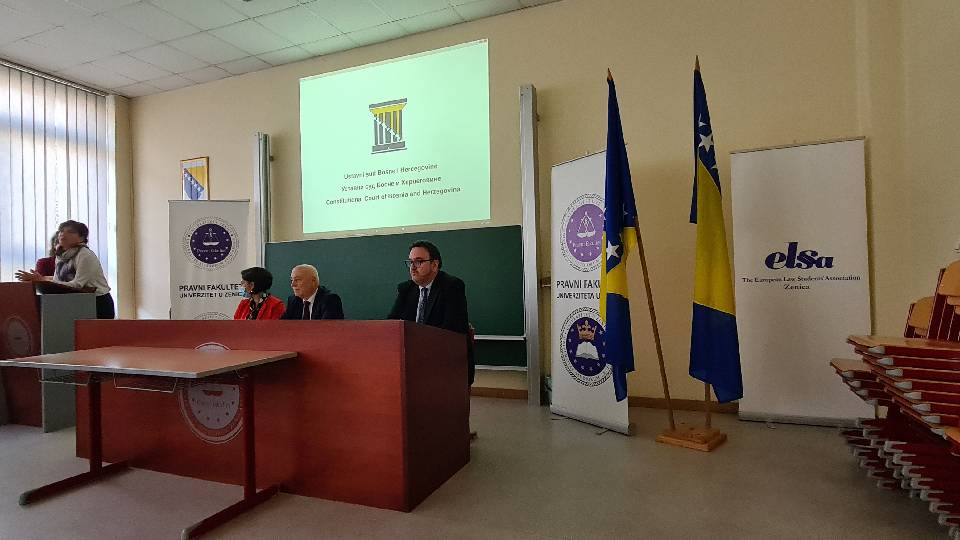Nov 2021
UNIGEM: 16 DAYS OF ACTIVISM - UNIVERSITY OF ZENICA

Lectures were held for students of the University of Zenica on "Gender Equality in the Practice of the Constitutional Court of BiH" within the UNIGEM project, to mark "16 days of activism - why is this campaign important?" The goal was to stimulate young people's interest in raising awareness of prejudice on the same topic.
The lecture was attended by 39 students in compliance with all hygienic and epidemiological measures. This activity was attended by several other teachers from the university (Prof. Dr. Ilhan Bušatlić, Assistant Professor Dr. Dženana Radončić), and it was led by Prof. dr. Anela Hasanagić, Maša Alijević and Aida Rizvanović. After introductory speeches, a discussion was opened which was very productive. The lecture and scoring of certain topics caused a lot of attention and the discussion among the students continued in the following days at certain classes of regular lectures.
The aim of the lecture was to encourage young people to think about gender equality. At the end of the lecture there were many questions and the students expressed their desire to participate in activities supported by the UNIGEM project.
Date 15.11.2021. An educational workshop for students of the University of Zenica was held in the framework of "16 days of activism - Why is this campaign important" on the narrow topic "Gender-based violence". The workshop was realized within the UNIGEM project in cooperation with the TPO Foundation with the support of the British Embassy in Bosnia and Herzegovina. The aim of the workshop was to spread knowledge and change attitudes, ie sensitization of students in relation to the topic of gender-based violence.
In the first part of the workshop, which was realized by doc.dr. Aida Rizvanović, the introductory topics of defining the concept, factors and typology of violence were discussed. The following is one of the most important international instruments in the fight against violence against women - the Council of Europe Convention on Preventing and Combating Violence against Women and Domestic Violence (known as the Istanbul Convention), after which some forms of violence against women are discussed in more detail. , psychological violence, sexual violence, trafficking in women for the purpose of sexual exploitation, economic violence, violence in the workplace).
In the second part of the workshop, which was realized by doc.dr. Dženana Radončić, the focus is on society's response to cases of gender-based violence (which includes family, partners, work colleagues, media, but also the wider community), as well as the most important challenges in prosecuting acts of gender-based violence, due to frequent prejudice and insufficient sensitization of professionals in the chain of protection against violence against women (police, social work centers, health workers, prosecutors, courts, but also public policy makers and legislators). The debate revolved around widespread but unacceptable views of the victim's "guilt / responsibility" for the gender-based violence to which she was exposed, as well as the "victim's resistance" to sexual violence. Through interactive work, the basic prejudices woven into the social reaction to various cases of gender-based violence are made aware, which can significantly affect the reporting of violence and the adequate response of institutions to cases of gender-based violence.























